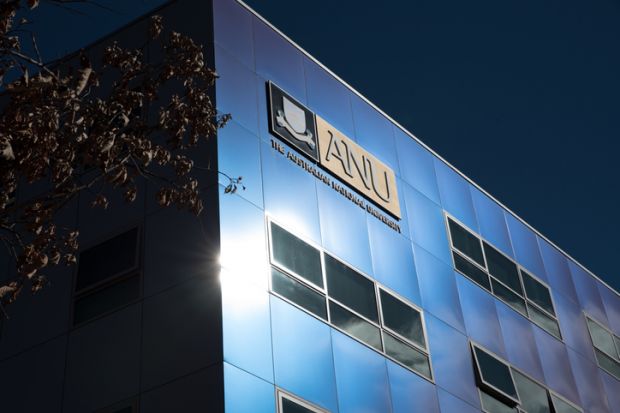Australia’s nationally funded university has cut ties with Russia, making it the first Antipodean institution to impose an academic boycott over the war in Ukraine.
In a statement, ANU’s leadership said the invasion “threatens the peace, freedom and democracy on which freedom of inquiry and academic collaboration is based. The university is therefore suspending all ties and activities with Russian institutions, indefinitely and with immediate effect.
“We identify with those brave Russian academics and students who oppose President Putin’s unprovoked aggression,” the statement added.
ANU’s deputy vice-chancellor for international strategy, Sally Wheeler, stressed that the move did not preclude academic ties at the personal level. “We’re not talking about individuals…not publishing with Russian colleagues,” Professor Wheeler told Times Higher Education.
“We’re talking about institution-to-institution arrangements that are normally done in a spirit of cooperation around shared values. That’s just not possible for us at the moment.”
ANU’s action aligns it with Massachusetts Institute of Technology, which has ended a decade-long partnership to establish an industrial-academic development on Moscow’s western outskirts.
Universities in Germany, Denmark and Lithuania have also been pressed to suspend cooperation with Russian institutions, while the European Commission has vowed not to approve any new agreements with Russian organisations.
ANU’s stance puts it ahead of its representative organisation, the Group of Eight (Go8), which issued a statement “condemning Russia’s attack on Ukraine’s people and sovereignty” but made no mention of an academic boycott.
“We are deeply concerned for Ukrainian staff and students in our universities who experience the grief and suffering of war unfolding in their home country,” the Go8 statement said, also noting that “many Russians including academics and researchers have bravely taken actions or issued statements condemning this war”.
Pro-boycott voices in Europe say Russia’s “grave breach of international law” demands an uncompromising international response. Opponents say academic connections need to be preserved to help keep the lines of communication open and boost the prospects of peace.
They say cutting ties with Russian universities will punish students and academics who have spoken out against the war, often at great personal risk, and sanction people on the basis of their nationality.
Go8 chief executive director Vicki Thomson said similar conversations were taking place in Australia. “It’s a very live discussion across all of our universities,” she said.
“Whether or not our universities individually take that next step is a matter for them, but it is a live discussion.”
ANU said it was “proud to stand alongside other universities across the world” that had committed to cut ties with Russia. “We urge institutions of all types across Australia to join us.”
One of the signatories of the statement, ANU chancellor Julie Bishop, is a former Australian foreign minister who confronted Vladimir Putin over Russia’s involvement in the catastrophic destruction of a Malaysian Airlines jet over eastern Ukraine in 2014.
An Australian boycott of Russia would lack the impact of European action because of the relatively minor academic links between the two countries.
Russia is Australia’s 27th ranked research partner behind countries including Belgium, Finland and Iran, according to Scopus data, with Australian and Russian researchers co-authoring around 6,700 publications over the past six years – less than one-13th of the tally produced with top partners like the US and China.
About 1,000 Russian students enrol with Australian educational institutions each year – about 0.1 per cent of the total from all nations.
Register to continue
Why register?
- Registration is free and only takes a moment
- Once registered, you can read 3 articles a month
- Sign up for our newsletter
Subscribe
Or subscribe for unlimited access to:
- Unlimited access to news, views, insights & reviews
- Digital editions
- Digital access to THE’s university and college rankings analysis
Already registered or a current subscriber? Login










